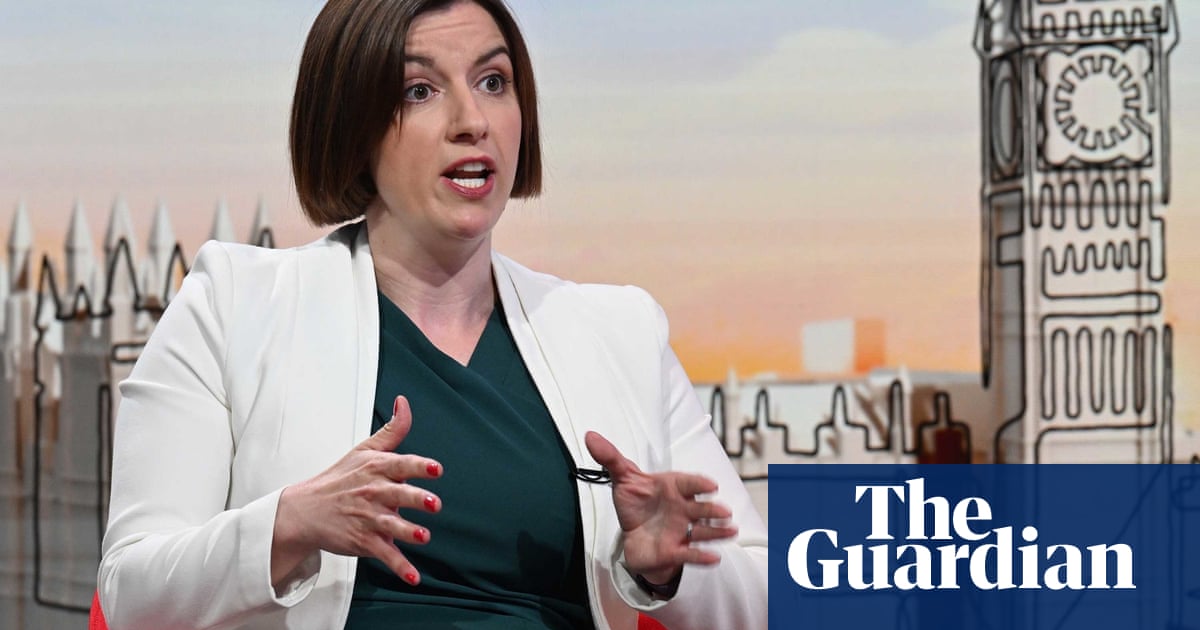
Labour has pledged to create more than 100,000 new nursery places for children from nine months old, helping to both drive up standards and meet demand, as a key manifesto offer for working parents.
The party plans to set up more than 3,300 new nurseries in existing primary schools in England to support a major expansion of childcare.
The existing childcare system is widely regarded as expensive and underfunded, and many parents are forced to drop out of the workforce to look after their children.
The plan for near-universal provision, available from the end of parental leave to the end of primary school, is one of a series of eye-catching policies expected to be unveiled this Thursday, as Keir Starmer publishes Labour’s manifesto.
Labour has already pledged to stick to government plans for a staged expansion of childcare, with working parents of all two-year olds able to claim 15 hours a week of free childcare during term time since April. This will apply to parents with children over the age of nine months from September 2024, and increase to 30 hours a week from September 2025.
But experts have warned that it is a sticking-plaster solution, pumping money into a system already struggling to cope with demand. Nurseries said they did not have the capacity to deliver the extra spaces needed.
Under Labour’s plan, 3,334 classrooms in existing primary schools will be converted to accommodate 100,000 extra childcare places. Spare capacity is growing in primaries due to falling birth rates. The Department for Education estimates that about 85,000 places are needed for current plans.
Labour said that refurbishing classrooms, which they hope will start within weeks of entering government and be complete well before the end of a first term, would cost an average £40,000 each. The total, £140m, would be funded by the party’s plans to levy VAT on private school fees.
Keir Starmer, the Labour leader, told the Guardian: “It’s very good for children to be at nursery, particularly our plan to have them in a school environment. Many schools will say when they get to reception many children don’t have the skills that they need to start learning straight away.”
Local growth plans would consider whether low recruitment of nursery staff was inhibiting parents and carers from returning to work, while councils would be given more of a role in shaping nursery provision in their areas.
Around 85% of mothers struggle to find childcare that fits around their work, while one in 10 have quit jobs due to childcare pressures, according to the Fawcett Society. In England, there are currently two children for every available place.
“It’s hugely important for parents and carers, predominantly women, to get back into the working environment … It’s not just about being back in the labour force, but progressing,” Starmer said.
“There are many bits of our plan to grow the economy, but one of them is making sure we can get as many people into the labour market as possible. So this is a big lever to pull.”
Labour will target its new nursery places – to be run by schools themselves or local private or voluntary providers – in “childcare deserts”, areas with severe shortages, enabling more parents to work. As well as high-quality education, nurseries in schools see lower staff turnover.
Starmer indicated that the plans would go a significant way towards providing universal childcare, which his shadow education secretary, Bridget Phillipson, who has visited Estonia, Australia and other countries for inspiration, said last year would compare with the creation of the NHS.
“Yes, once you’ve gone to 30 hours from nine months to four years, with a plan to deliver it, which is the difference between us and the government … it’s pretty bold stuff,” said Starmer, adding that Labour, which has already pledged breakfast clubs for every primary school, would encourage more schools to open during the holidays.
The party has already commissioned Sir David Bell, a former chief inspector of schools and permanent secretary at the DfE, to draw up detailed plans to deliver the expansion as part of a wider review of early years provision.
Jemima Olchawski, the chief executive of the Fawcett Society, said it was about time childcare became an election priority. “There are many things wrong with our childcare system, and so Labour’s announcement that they will undertake a wide review of the sector involving all stakeholders is important,” she said.
“We welcome Labour’s focus on increasing places, especially in childcare deserts – this is particularly important in terms of getting women back into work, as well as supporting early education for the most disadvantaged.
“We are also pleased that they have heeded our calls for more of a market-shaping role for local government, and more financial transparency for the big providers.
“We need to see childcare given the prominence it deserves in every party’s manifesto and we need to see genuine, long-term commitments that last beyond this election. If we don’t, women will lose out and parties will lose votes.”
Victoria Benson, chief executive of Gingerbread, a charity for single-parent families, said they welcomed the creation of more childcare places, particularly in childcare deserts, but that the problems ran deeper.
“Currently, single parents who are training, retraining or studying aren’t entitled to the same childcare support as those in work. This must change to allow single parents to reach their full potential,” she said.












